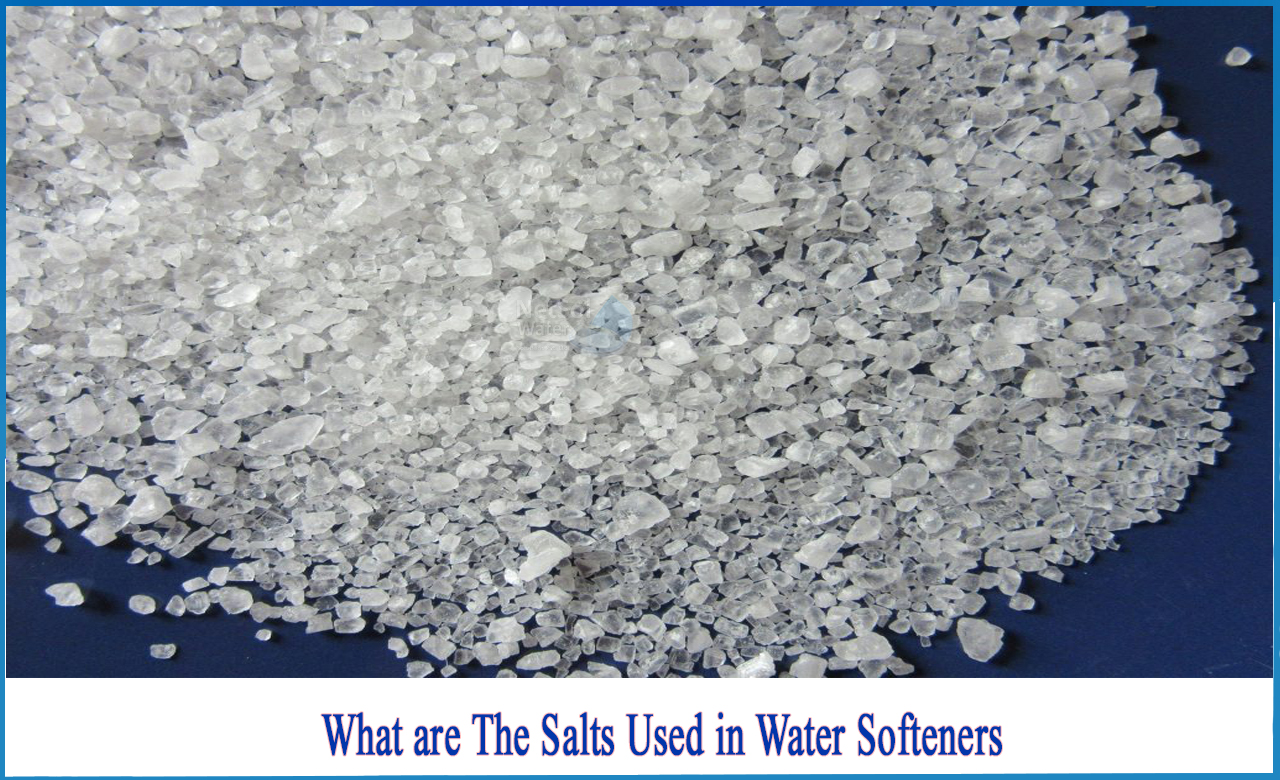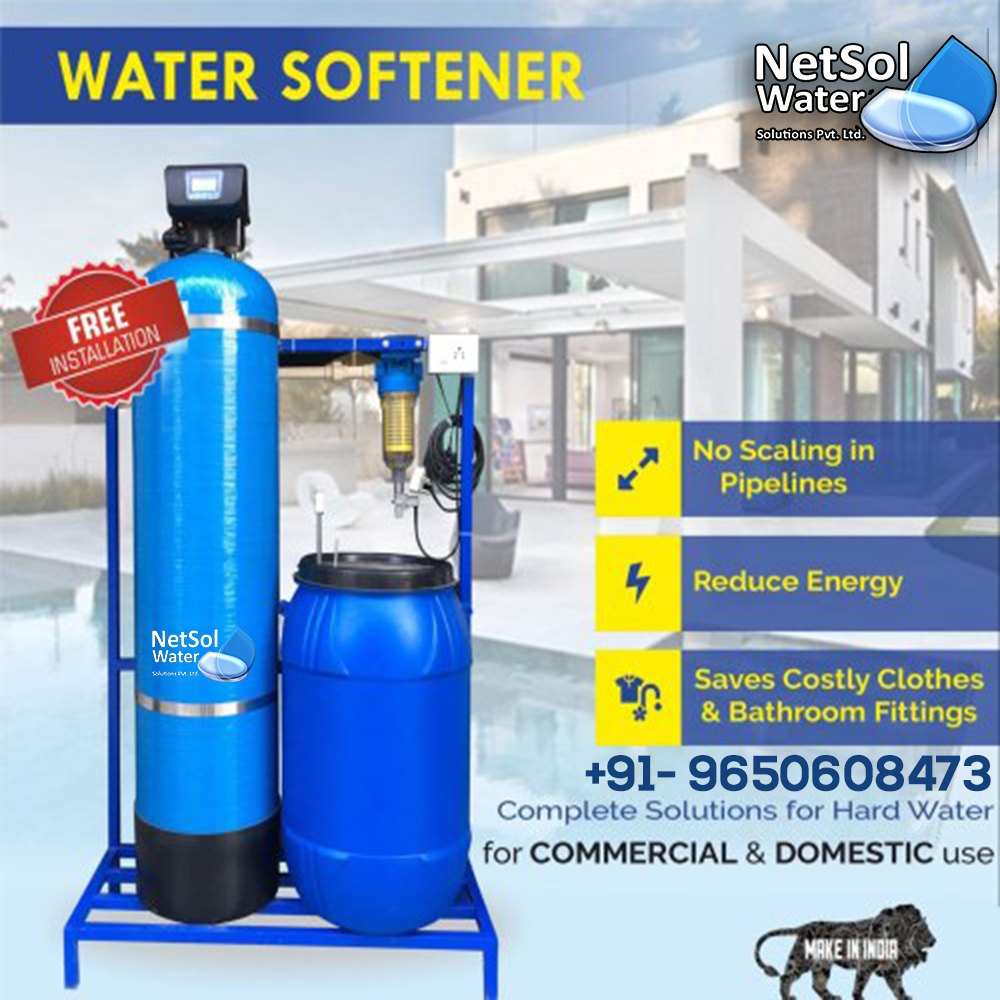Why is salt even used in a water softener?
While you may be aware that a water softener can help with a number of hard water issues, many people are still curious about what happens within those tanks. Water softener salt is one of the most frequently misunderstood topics among homeowners.
"How much of this salt ends up in my water?" you might worry every time you bring a hefty bag of softener salt into your home and refill the brine tank. Is the water I'm drinking, bathing with, and cooking with salty?"
Water softeners, in fact, do not add any salt to the water. The salt is broken down in the water softening process so that the sodium can be used. There is a distinction to be made.To clarify, salt, commonly known as sodium chloride (NaCl), is a substance that contains sodium (Na). Sodium is an element, while salt is a chemical compound. Sodium can be found in a variety of foods and substances, including bread, pizza, cheese, and, of course, table salt.
What type of salt is used in a water softener?
Water softeners are most effective when they use salts that are specifically formulated for softening water. That means no dicing, table salts, or similar salts.You can usually pick between sodium chloride (crystals, pellets, and block salt) and potassium chloride when replacing the salt in your water softener.
The type of salt you use might have an impact on the regeneration and efficiency of your water softener. It can also affect the amount of sodium that enters your softened water, the expense of salt adjustments, and the frequency with which your brink tank must be cleaned.
Each type of salt can be discussed as:
Sodium chloride comes in three main forms: pellets, crystals, and block salt. Sodium chloride is commonly utilised due to its inexpensive cost and effectiveness, as well as the fact that it is readily available in a number of forms.
Here's a quick rundown of the different options:
1-Crystals of salt:
Rock Salt: Rock salt resembles little rocks or pebbles, as the name suggests. It's mined underground and formed by the accumulation of salt deposits. Rock salt is the most natural salt on this list, which means that the salt crystals may contain traces of other substances. Although rock salt is less expensive, it contains a lot of calcium sulphate, which means it won't dissolve properly in water and will cause frequent maintenance issues.
Solar salt ?(often referred to as "sea salt"): It is a by-product of evaporated saltwater. When the sun dries out the very saline ocean, it produces it naturally. This sort of salt has a purity of 99.6%. It's also extremely soluble, even more so than rock salt. This implies it dissolves far more quickly than other types of water softeners.
Salt Pellets (Evaporated): The purest type of sodium-based salts for water softening is evaporated salt. It's also the most expensive type listed here, as you might anticipate. When raw salt is turned to sodium chloride and all moisture is eliminated, this sort of salt occurs. The only thing that remains after this process is 100 percent pure salt. Evaporated salt pellets are extremely effective at treating hard water and softening it because of their pure state.
2-Block Salt:
Block salt is one of the salts that should not be used in water softeners. To produce the blocks, some companies add a bonding agent to the salt, which is simply more impurities added to the salt. As a result, we do not advise utilising it.
3-Iron Out / Rust Out:
These are brand names for the iron-reducing chemical sodium bi-sulfate, which is widely available in department and hardware stores. This is one of the most effective products for restoring iron fouled resin, and it is used on a regular basis to avoid resin fouling and remove iron discoloration from garments and fixtures. The most significant disadvantage of powdered sodium bi-sulfate is that it is irritating to the lungs and eyes and should not be inhaled. Before using, read the directions thoroughly.
4-Citric Acid
Citric acid isn't as effective as sodium bi-sulfate or phosphoric acid at removing iron, but it can be used without any special precautions. Citric acid is best used in water softeners where there is no iron present but extra preventative maintenance is necessary. For individuals who want "silky soft" water, citric acid can assist maximise water softener efficiencies and give softened water a boost.
Salt additives:
Similarly, to how petrol keeps a car going, salt maintains a water softener removing unwanted minerals from water. Some water sources may include high levels of iron and manganese, which can cause water softener resin to foul. During regeneration, salt can remove iron and manganese from the softener resin, although using additives to help with this process is always advantageous.
Potassium chloride is a great substitute for salt (sodium chloride), especially because it is sodium-free (99.9%). While this is ideal for those wanting to lower their salt intake, the potassium is harmful to people who have hypertension or have a family history of the disease. Potassium chloride pellets are also more expensive and less readily available than salt pellets.If you want to move from salt to potassium chloride pellets, you'll probably need to increase the salt dosage programme setting on the valve by roughly 10% to ensure that the system regenerates properly.




